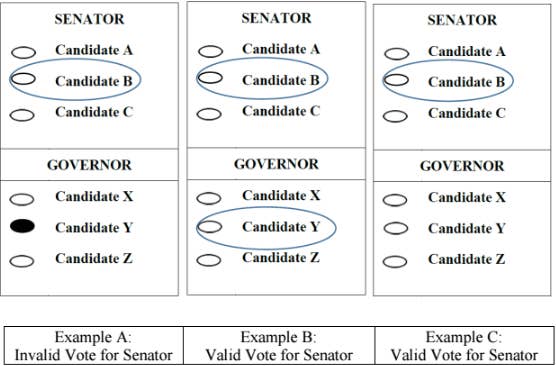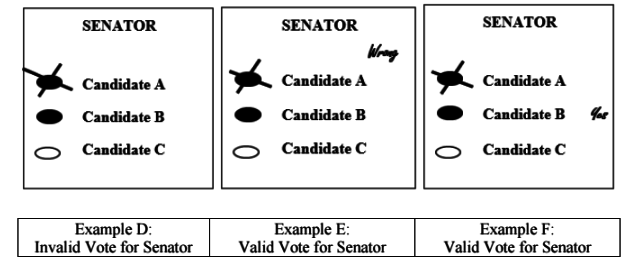
A federal judge in Florida late Thursday rejected a constitutional challenge by Sen. Bill Nelson and Florida Democrats to state rules that govern how counters in a recount determine what candidate a voter meant to choose on their ballot.
The decision on the so-called “magic words” and “consistency” rules came as Florida officials undertake on a hand recount in the close US Senate race between Nelson and Republican Gov. Rick Scott. Nelson’s lawyers argued that the rules could unconstitutionally imperil the votes of thousands of Floridians. US District Chief Judge Mark Walker held that they were “neutral, reasonable, standard” practices.
“They are uniform, nondifferential standards that provide a reasonable procedure to determine the intent of voters. This is not to say the rules are perfect or the best way to do things. But they are constitutional,” Walker wrote in his opinion.
Under the “consistency requirement,” a vote won’t be counted if the voter didn’t mark their preference in the same way throughout their ballot. For instance, if a voter filled in a box in one place, and wrote a check mark in another place, those votes wouldn’t be counted.

Under the “magic words” rule, a voter who mistakenly marked the ballot for one candidate and then crossed it out to mark another wouldn’t have their vote counted unless they also wrote certain words, such as “wrong,” “not this”, or “ignore this,” to explicitly signal their intent.

Walker, who is handling the litany of election-related litigation filed in federal court in Tallahassee, wrote in his opinion that the state had an interest in adopting rules for how to determine a voter’s intent when they didn’t follow the instructions for how to mark their ballot.
“If a voter fails to follow reasonable rules — and having to fill in an oval is reasonable — the state has not burdened the right to vote. Similarly, when the state applies a neutral, reasonable, standard practice — like the consistency and magic words rules — to try to determine the intent of a voter, when the voter has not followed instructions, the state has not burdened the right to vote,” Walker wrote.
The state also had a significant interest in the rules remaining in place, Walker found, pointing to the fact that the manual recount was already underway and counters had been trained under the current rules.
Florida Democrats and Nelson’s campaign filed suit on Nov. 13 challenging the rejection of ballots based on the “magic words” and “consistency” rules. They argued that the “magic words” rule would particularly disadvantage voters with limited literacy or for whom English is not a first language.
Lawyers for the Democrats argued that the “consistency” rule is unconstitutional because it treated voters differently and created an unreasonable burden on the right to vote. Two voters might mark their ballots the same way for one candidate, Democrats argued, but if the first voter uses different marks for other candidates and the second voter uses consistent markings, the second voter’s votes will be counted and the first voter’s votes won’t.
“Here, it is all but certain that thousands of voters are in danger of being disenfranchised because their ballots are determined not to meet the Consistency Requirement,” Democrats’ lawyers wrote in their court papers.
Lawyers for the Florida secretary of state’s office and the National Republican Senatorial Committee defended the laws. The NRSC’s lawyers argued in court papers that the laws at issue were “longstanding, politically neutral, and generally applicable regulations that provide election officials clear and objective guidance in conducting manual recounts.” They argued that the standards were developed in the aftermath of the 2000 recount, in an effort to make the process of counting votes more objective.
“Election recounts are highly-charged events, and Florida’s regulations are an eminently reasonable, sensible, and indeed constitutionally required method for preserving public confidence in the integrity and impartiality of voter recounts,” the Republicans’ lawyers wrote.
County election boards must submit the results of hand recounts by Sunday at noon. Walker on Thursday rejected a request by Democrats for a preliminary injunction extending the deadline to give counties more time to complete the recount.

